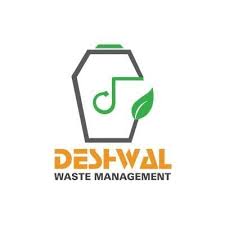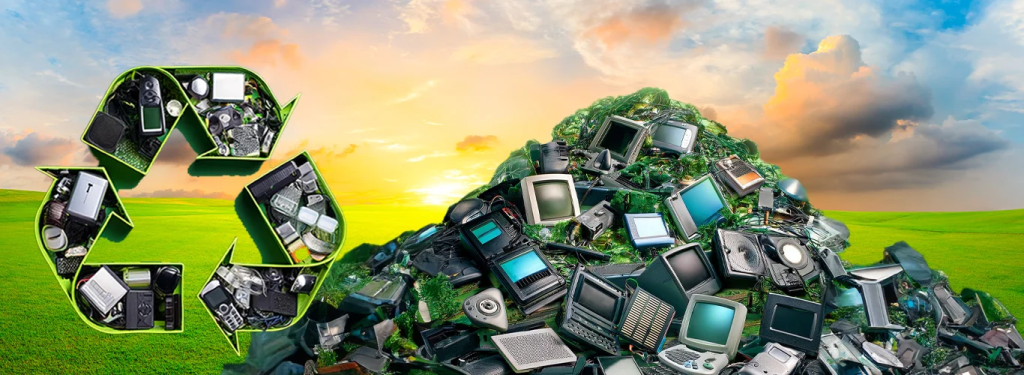Global waste increasing year by year, and the question of effective and environmentally friendly recycling is more dire than ever. The future of waste management is more innovation, technology and solving new ways, and systems that can deal with tons of waste produced globally. Here, as in the previous blogs of our series dedicated to e-waste recycling processes, we will look at the next upcoming categories of technologies and trends.
Advanced Recycling Sorting
The problem of sorting waste remains one of the most significant problems in recycling throughout the world at present. Most systems fail to address contamination issues that decrease the quality of recyclables as well as the ability to recycle any given material. However, there is hope for the future because AI and robotics are the next big thing, as we speak of. With the help of machine learning and image recognition, a new generation of sorting lines will be able to sort all kinds of waste with high accuracy and an impressive rate of work.
Robotic hands with additional sensors can differentiate between plastics, metals and organic materials and are more efficient than people sorting the materials. This technology will not only enhance ideal levels of waste management but also raise the profitability level of recycling.
Chemical Recycling: Breaking Down Complex Plastics
There are difficulties associated with a conventional mechanical recycling approach, which is common for highly or moderately contaminated materials that cannot be recycled directly. Introducing chemical recycling—an approach that we consider revolutionary since it can degrade the polymers that make up the plastics. Chemical recycling can also work with mixed and difficult-to-recycle plastics through processes such as pyrolysis and gasification to form high-value chemicals or convert them back to monomers.
This means that instead of ending up being disposed of by burning or dumping it in a landfill, the plastic waste can be recycled several times without significant loss in its quality. In the future, chemical recycling may apply not only to the seven listed types of plastics but to a much broader list, slashing the overall level of plastic waste and its impact on the environment.
Blockchain for Transparent Supply Chains
The future of waste management will not only rely on physical technologies but also on digital innovations. Blockchain technology is emerging as a powerful tool to ensure transparency and traceability in recycling supply chains. By using blockchain, companies can track the journey of materials from collection through to processing and final reuse.
This transparency can help consumers and organizations verify that their recyclables are being properly managed and not diverted to landfills or illegal dumpsites. Moreover, blockchain can facilitate smart contracts, enabling recyclers in India and manufacturers to securely share data and payments, making the entire process more efficient and trustworthy.
Smart Bins and IoT Integration
IoT (Internet of Things) technology is making its way into waste management infrastructure through smart bins. These bins can automatically sort waste into different categories, compact it, and even alert collection services when they are full. Smart bins equipped with sensors and cameras can scan items and suggest whether they are recyclable, providing real-time data on consumer behavior and waste generation.
Such innovations not only make recycling more convenient but also help municipalities plan better waste management strategies based on data insights. This can lead to more efficient recycling processes and a reduction in the amount of waste that ends up in landfills.
Biotechnology: Enzymatic and Bacterial Solutions
Biotechnology is set to play a revolutionary role in tackling waste that was once considered unrecyclable. Enzymatic and bacterial recycling solutions are currently being developed to break down complex polymers and organic waste. For example, scientists have engineered bacteria that can decompose polyethylene terephthalate (PET) plastic into its constituent elements, which can then be reused to create new products.
Similarly, enzymes can be designed to target specific types of waste, accelerating the decomposition process in a controlled manner. This breakthrough has the potential to turn organic waste into valuable bio-based materials and even produce energy as a byproduct.
Recycling-as-a-Service (RaaS) Platforms
The concept of Recycling-as-a-Service (RaaS) is poised to change how businesses and consumers interact with recycling. Through cloud-based platforms, companies and individuals can access a range of services—from material collection and sorting to recycling and disposal—in a more organized manner.
RaaS platforms can use AI to predict recycling needs, optimize logistics, and even suggest new recycling streams based on evolving consumer behaviors. This shift towards a service model can streamline operations and foster greater collaboration between recyclers, manufacturers, and end-users.
Final Thoughts
The good news is that recycling is a young industry that has already shown impressive growth all around the globe, thanks to innovative technologies and changing consumer behavior. Sustainable Artificial Intelligence, robotics, chemical recycling, blockchain, and Biotechnology are only some of the groundbreaking technologies that are poised to revolutionize the way we deal with waste. With the advancement of these technologies and the growth of industries around them, not only will recycling become more efficient but the world will be structured to view waste as the new gold.
The adoption of these innovations will in the future need the cooperation between consumers, businesses and the government with a proper goal of designing a good recycling system. Therefore, the end products will be sustainability, a clean environment and preservation of the depletion of resources within the environment for future generations. This appendix indicates that the recycling future is going to make general use of the term ‘waste’ irrelevant because the line between waste and valuable resources is going to be non-existent.
Source link : View Article
Author
-

The DW Management Pvt. Ltd. Team focuses on sustainable waste management and innovative recycling solutions. They aim to create systems that support a circular economy, emphasizing environmental responsibility and resource efficiency.



